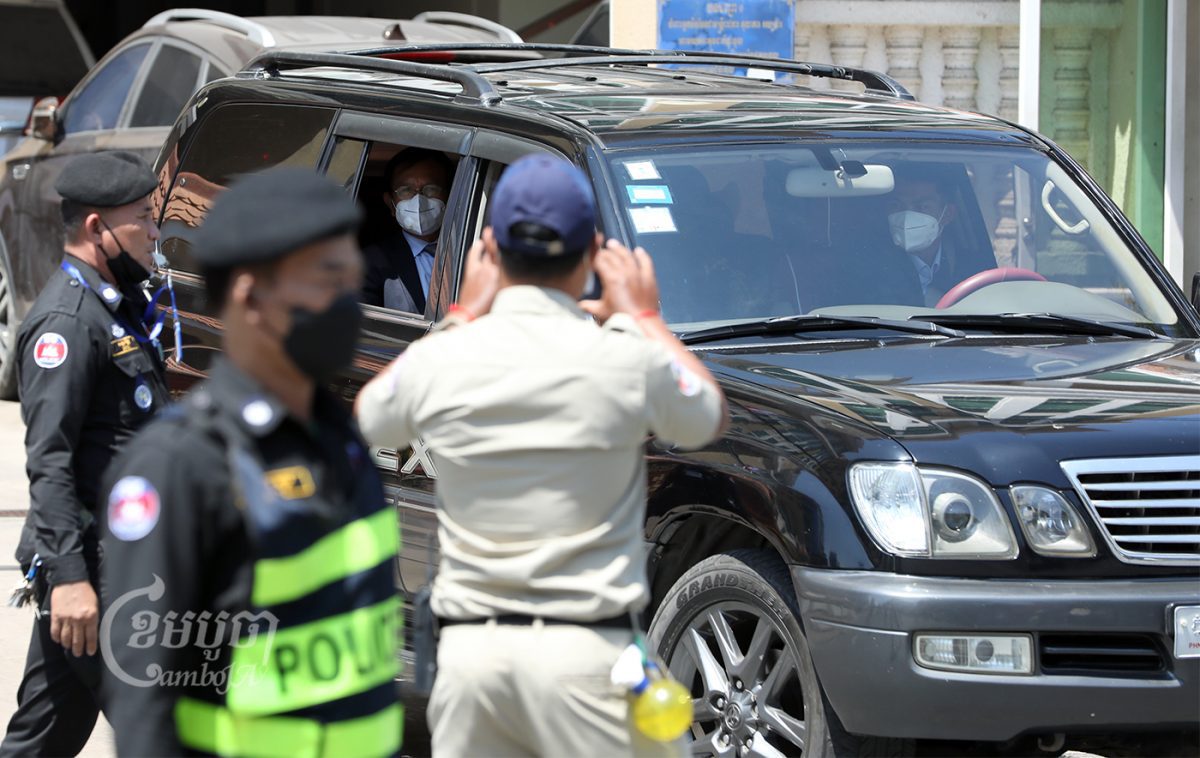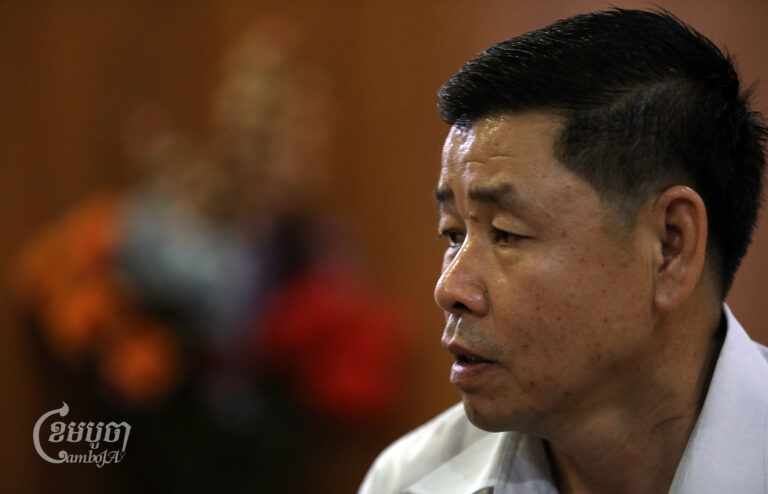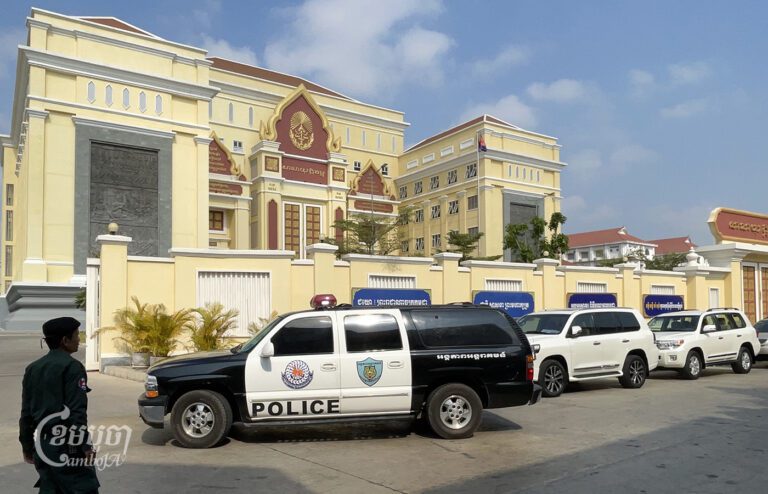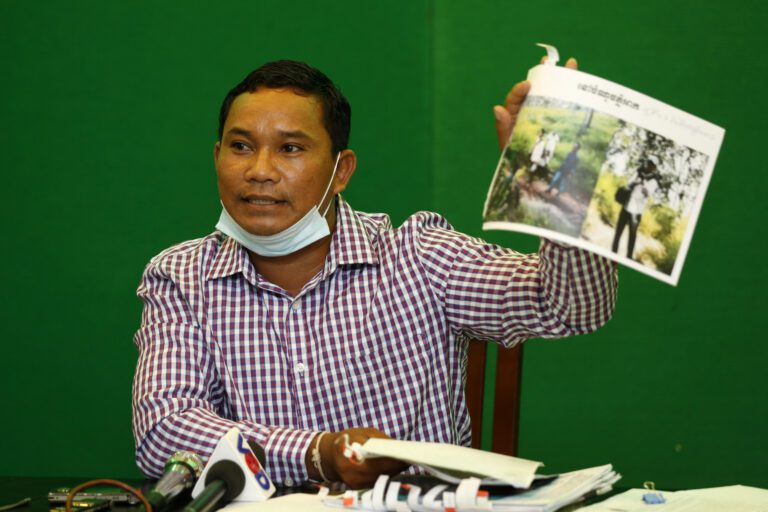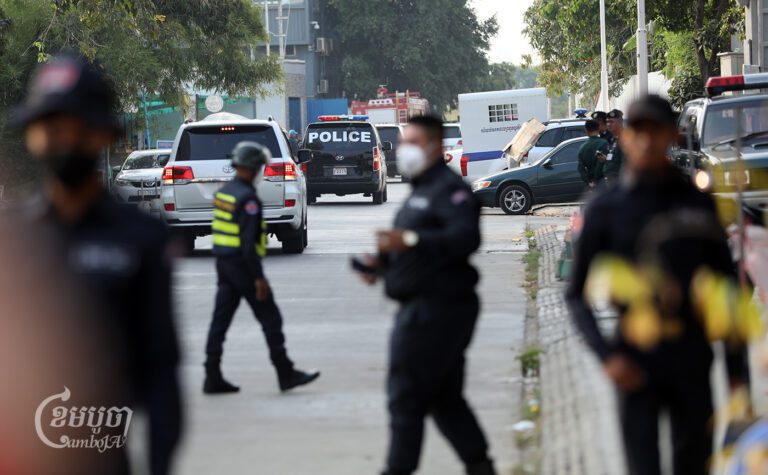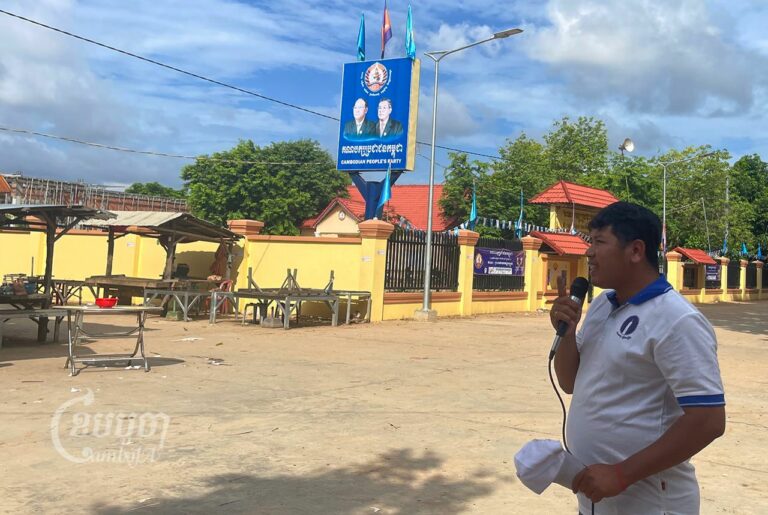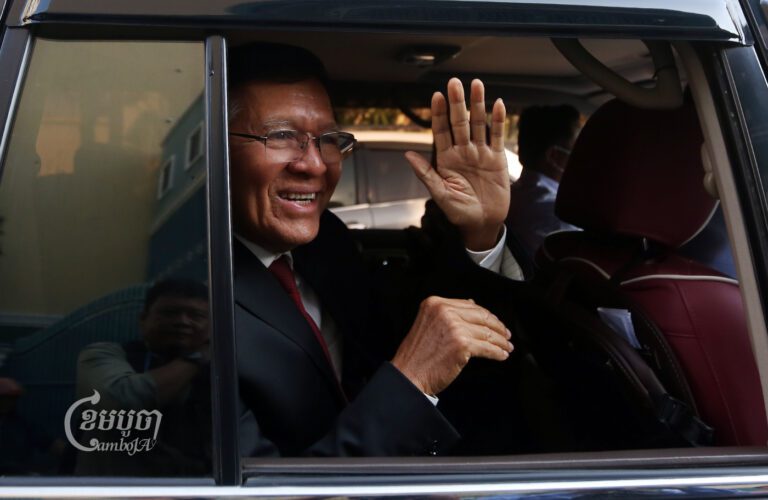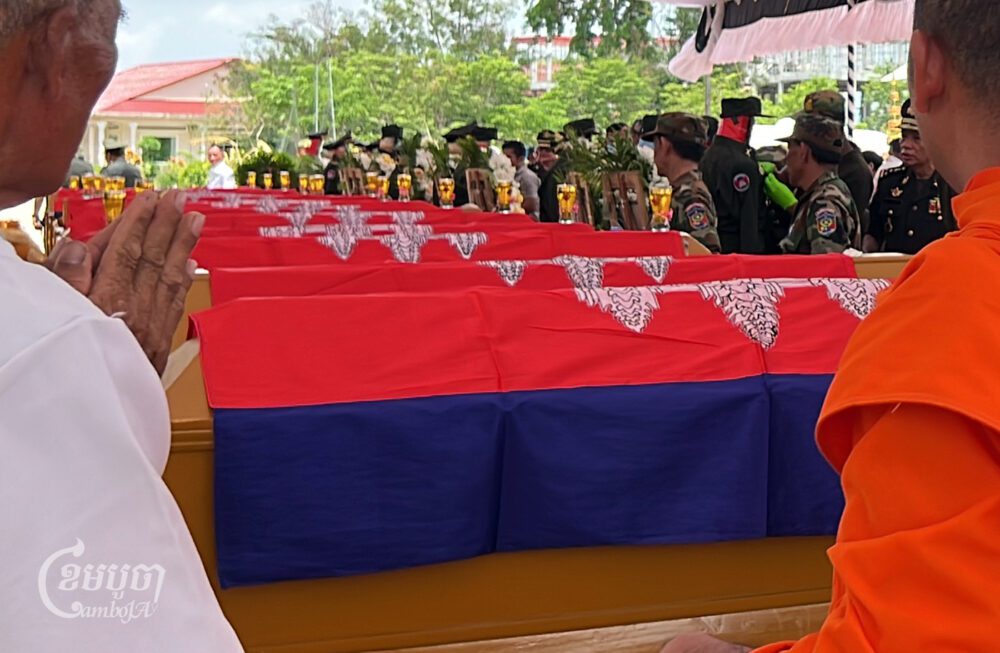The Phnom Penh Municipal Court will consider adding more trial days for the hearing in the treason case against former opposition leader Kem Sokha following a request by his lawyer. Civil society groups have maintained that the trial, which is being held just once a week for less than four hours each time, undermines Sokha’s rights to a speedy trial.
Chan Chen, one of four lawyers for Kem Sokha, stressed that the current court schedule has seen little progress in moving p the trial forward.
“The court should set up a schedule of hearing like five days or at least three days a week because my client was arrested four years ago and it has impacted his interests,” he said.
In reply, presiding judge Koy Sao said that, “the court will consider based on the facts of a suitable situation.”
Civil society groups observed the trial has moved more slowly than usual even on the days when it is heard, with excessive time spent on submitting and corroborating evidence. During the trial, prosecutors spent excessive time pushing Sokha’s lawyers to verify specific dates of each piece of video evidence, said Soeng Senkaruna, a senior investigator at rights Adhoc.
“Even if there are more days of the trial, it won’t be promptly put to an end,” said Senkaruna, who attended the trial and stressed it was critical more hearing days be added.
“We have not seen any progress to be noticed during the trial,” he said.
Senkaruna said lawyers for both sides were at fault, noting that prosecutors and defense attorneys often repeated the same statement and mocked one another.
He said that political settlement is an important key to resolving the case of Sokha because the international community is observing the court proceedings, and has criticized Cambodia for undermining democracy and human rights by prosecuting dissenting voices.
“If there is a free Kem Sokha, the international community will accept some points related to the political situation and democracy in Cambodia,” he said.
Sokha was arrested on September 3, 2017 and charged with conspiring with a foreign power. He was moved from prison to house arrest a year after his arrest and released from house arrest in November 2019, but the charges still hang over him. The state has accused him of working with the US to attempt a so-called color revolution to overthrow the government of the ruling CPP.
Sokha has maintained that he has only acted legitimately and transparently to try to win an election.
The CNRP was dissolved in 2017 by the Supreme Court, with scores of party members arrested on what are widely believed to be politically motivated charges. Its top leaders went into exile and more than 100 members were barred from political participation for five years.
At Wednesday’s trial, the defense played two clips it had played in previous weeks and read out two statements by the CNRP, which they said demonstrated there had been irregularities in the 2013 election at some polling stations.
One clip included audio from Radio Free Asia reporting that Transparency International had found irregularities in the 2013 election, which impacted voter’s will.
Plang Sophal, deputy prosecutor, responded that the defense lawyers lacked integrity, noting there were three pages of the RFA transcript, but Sokha’s lawyers only presented two.
Sokha’s lawyer, Meng Sopheary, replied that the court agreed to admit the transcript of the recording, not to take the audio, so it didn’t matter whether the prosecutor listened to the audio or not.
Sophal replied, “what does it mean, want to listen or not listen? You can’t use that word, or you put evidence for fun.”
Former senior CNRP official, Meach Sovannara, who attended Wednesday’s hearing, said it made sense that the case was moving slowly given the political sensitivities.
“I think they have intentionally [prolonged a case] that involves politics. The court was influenced by politicians,” he said.
He added that if the court is independent and judges have discretion in court proceeding, they should speed up procedure in order to demonstrate that the court has no influence from politicians
The trial will continue on March 2.


